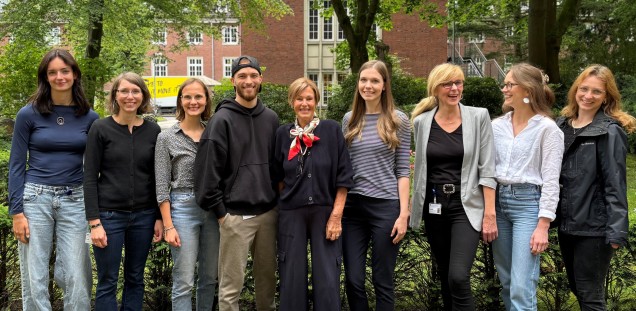Welcome to "Child Public Health"
The promotion of a healthy childhood as well as the utilization of preventive potentials during childhood and adolescence is an important premise to advance child public health.
Successfully developing and applying evidence-based knowledge to promote child public health relies heavily on in depth knowledge about the physiological and psychological situation of children and adolescents.
Expanding this knowledge is the main goal of the research division "Child Public Health" of the University Medical Center Hamburg-Eppendorf.
The Child Public Health group is part of the
Clinic for Child and Adolescent Psychiatry, Psychotherapy and Psychosomatics
and is also tied to the Center for Psychosocial Medicine.
The research devision „Child Public Health“ is lead by Prof. Dr. phil. Ulrike Ravens-Sieberer.
Objectives and Tasks
Health related attitudes and behaviour develops during childhood and adolescence. Developmental deficits and health related problems occurring during this period of life are often the beginning of a long-term illness, reducing the quality of life for the individual and causing extra efforts and additional expenses for the health care sector. Therefore research in Public Health due to epidemiological studies is of great importance, to develop strategies that improve children's and adolescents' health trough prevention and health promotion.
Research and work of the “Child Public Health” section is directed towards several different subjects:
- implementation of surveys and epidemiological studies about “new morbidity” (well-being, conduct disorders, mental health problems and other) to conduct scientific findings for national and international research into children and adolescents health;
- improvement of health care utilization in regard to quality, efficiency and efficiency of health care for patients with chronic diseases;
- development of strategies for improving health related behaviour in terms of prevention and health promotion;
- contribution of methods development to improve assessment of Patient reported outcomes (Pro´s), quality of life (QoL) and family burden;
- to conduct Computer Assisted Telephone Interviews (CATI) focusing on health, mental health and health care in families.


